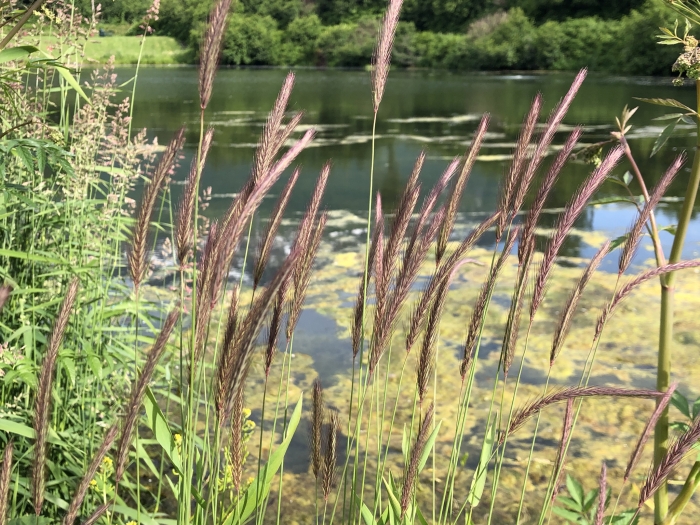Meadow Barley
(Hordeum brachyantherum)
Meadow Barley (Hordeum brachyantherum)
/
/

Jason Grant
CC BY 4.0
Image By:
Jason Grant
Recorded By:
Copyright:
CC BY 4.0
Copyright Notice:
Photo by: Jason Grant | License Type: CC BY 4.0 | License URL: http://creativecommons.org/licenses/by/4.0/ | Rights Holder: Jason Grant | Publisher: iNaturalist | Date Created: 2021-07-16T09:57:23-07:00 |
























































Estimated Native Range
Summary
Hordeum brachyantherum, commonly known as meadow barley, is a perennial herb, specifically a bunchgrass, that is native to wet meadows, grasslands, and riparian zones across western North America. It can grow up to a meter in height and is characterized by its tufted growth habit. Meadow barley produces compact, narrow inflorescences that are 8 to 10 centimeters long and display a purplish hue. The spikelets, typical of the barley family, are arranged in triplets. This grass is particularly noted for its ability to restore native perennial grasslands in California and is used to suppress invasive annual species. Its deep root system contributes to soil stabilization and enhances soil microbial biomass due to the consistent carbon supply from the living plants.
Meadow barley is valued for its ecological role in habitat restoration and its adaptability to a range of soil moisture conditions, from wet to dry. It thrives in full sun but can tolerate partial shade and is suited to a variety of soil types with varying drainage capabilities. While it is not commonly used for ornamental purposes, its resilience and ecological benefits make it a useful species for natural landscaping and erosion control. In cultivation, it requires medium amounts of water and can be a low-maintenance option for suitable areas.CC BY-SA 4.0
Meadow barley is valued for its ecological role in habitat restoration and its adaptability to a range of soil moisture conditions, from wet to dry. It thrives in full sun but can tolerate partial shade and is suited to a variety of soil types with varying drainage capabilities. While it is not commonly used for ornamental purposes, its resilience and ecological benefits make it a useful species for natural landscaping and erosion control. In cultivation, it requires medium amounts of water and can be a low-maintenance option for suitable areas.CC BY-SA 4.0
Plant Description
- Plant Type: Grass
- Height: 1-2 feet
- Width: 0.3-1 feet
- Growth Rate: Moderate
- Flower Color: N/A
- Flowering Season: Spring, Summer, Fall
- Leaf Retention: Deciduous
Growth Requirements
- Sun: Full Sun
- Water: Medium
- Drainage: Fast, Medium, Slow
Common Uses
Bird Garden, Deer Resistant, Erosion Control, Low Maintenance
Natural Habitat
Native to wet meadows, grasslands, and riparian zones across western North America
Other Names
Common Names: Northern Barley, Orge Des Prés
Scientific Names: , Hordeum brachyantherum, Critesion brachyantherum, Hordeum boreale, Hordeum jubatum subsp. breviaristatum, Hordeum jubatum subsp. brachyantherum, Critesion jubatum subsp. breviaristatum, Hordeum brachyantherum var. gracilius, Hordeum jubatum var. boreale, Hordeum nodosum var. boreale,
GBIF Accepted Name: Hordeum brachyantherum Nevski